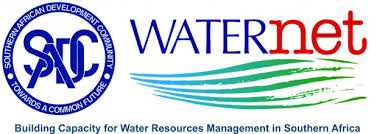
Climate change and variability is influencing the available water resources in river basins across the Eastern and Southern African regions. Changes in climatic variables, especially precipitation and temperature, affect hydrologic processes, such as evapotranspiration, runoff generation and groundwater recharge. This also affects water demand patterns and biophysical processes in rivers, lakes and wetlands. Due to the diversity of the national and transboundary catchments throughout the Eastern and Southern African regions, the effects of climate change and variability are not uniform and local impacts are poorly understood. The regions already experience large rainfall variability on both intra and inter-annual timescales. Long-term drought and famine events, which have struck these two regions within the last 30 years, illustrate the impact of such variability on water resources.
Given the current hydro-climatic changes taking place, there is need for efficient and effective water management based on accurate assessment of the available water resources. However, spatial and temporal distribution of hydrometric and meteorological stations across Africa is declining. Limited hydrological data availability coupled with complex hydrologic and hydrogeological systems has made prediction, planning and management of surface and groundwater resources under changing conditions a challenge. The theme focuses on how best to utilise existing data, and how newer technologies, such as remote sensing, local knowledge systems and big data can improve assessment of both surface and groundwater including transboundary water resources.
The papers in this sub-theme focus on addressing issues on enhancing efficient and effective assessment of water resources (including real time monitoring against a backdrop of uncertainties in a changing climate and socio-economic conditions), planning and management of surface and groundwater resources and the impact of climate change on water resources and agricultural production using appropriate models.
Climate change and variability is influencing the available water resources in river basins across the Eastern and Southern African regions. Changes in climatic variables, especially precipitation and temperature, affect hydrologic processes, such as evapotranspiration, runoff generation and groundwater recharge. This also affects water demand patterns and biophysical processes in rivers, lakes and wetlands. Due to the diversity of the national and transboundary catchments throughout the Eastern and Southern African regions, the effects of climate change and variability are not uniform and local impacts are poorly understood. The regions already experience large rainfall variability on both intra and inter-annual timescales. Long-term drought and famine events, which have struck these two regions within the last 30 years, illustrate the impact of such variability on water resources.
Given the current hydro-climatic changes taking place, there is need for efficient and effective water management based on accurate assessment of the available water resources. However, spatial and temporal distribution of hydrometric and meteorological stations across Africa is declining. Limited hydrological data availability coupled with complex hydrologic and hydrogeological systems has made prediction, planning and management of surface and groundwater resources under changing conditions a challenge. The theme focuses on how best to utilise existing data, and how newer technologies, such as remote sensing, local knowledge systems and big data can improve assessment of both surface and groundwater including transboundary water resources.
The papers in this sub-theme focus on addressing issues on enhancing efficient and effective assessment of water resources (including ...
21st WaterNet/WARFSA/GWPSA Symposium waternet@waternetonline.orgTechnical Issues?
If you're experiencing playback problems, try adjusting the quality or refreshing the page.
Questions for Speakers?
Use the Q&A tab to submit questions that may be addressed in follow-up sessions.